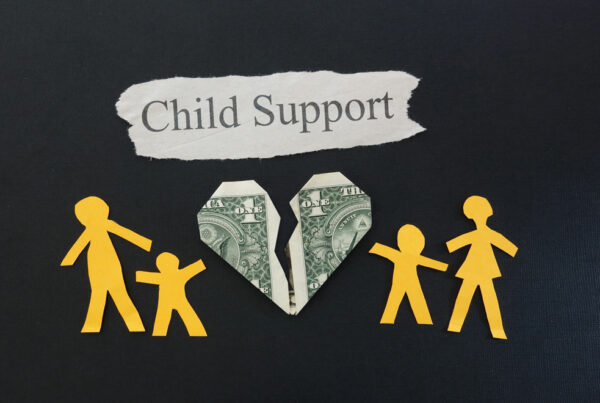
If you and your spouse have minor children, you’ll both need to continue caring for them throughout and after your divorce. The questions surrounding child support can get frustrating and complicated. Below is a basic overview of child support laws in Washington State.
Who’s Responsible for Paying Child Support?
Both parents have a legal and moral responsibility to financially support their children so that they do not become wards of the state. Child support may be awarded when the parents do not share equal, joint custody. The custodial parent is the one that spends the most time with the child or children. Typically speaking, it is the non-custodial parent — the one who spends less than 50% of the time with the child — who is responsible for paying child support to the custodial parent. The custodial parent is, of course, also responsible for child support, but the court assumes that, since the majority of the child’s time is being spent with this parent, the required amount of child support is being spent directly on the child.
How is Child Support Determined?
Child support in Washington State is determined by the combined income of both parents, the number of children, and the ages of the children. Additionally, both parents will be responsible for other expenses outside of the basic child support, including costs for childcare, education, and medical care.
Combined Income
The combined income can be determined by first determining the gross income of both parents. This includes income from all sources — salary, wages, commissions, bonuses, pension, interest earned, workers’ comp, social security, disability — everything. Take each parents’ gross income, then determine their net incomes by subtracting state and federal taxes, FICA taxes, and any already-existing child or spousal support. Finally, add both parents’ net incomes to determine the combined income.
Estimating the Amount of Child Support
The Washington State Child Support Schedule includes a list of definitions and standards, instructions, an economic table, and worksheets for estimating the amount of child support for which you’ll be responsible.
Once you determine the total amount of child support due, the total is then divided between parents proportionally, reflecting the percentage that each parent’s net income contributed to the combined income. For instance, if one parent contributed 75% of the combined income, that parent will be responsible for 75% of the total child support.
This overview has only begun to scratch the surface of child support laws in Washington State. In later articles, we’ll go over some questions surrounding challenges to the amount of child support and modifications to the child support schedule.
For answers about your specific case, contact the family law attorneys at Steller Legal Group for a free consultation.







http://gcialisk.com/ – purchase cialis
cialis prices
buying cheap cialis online